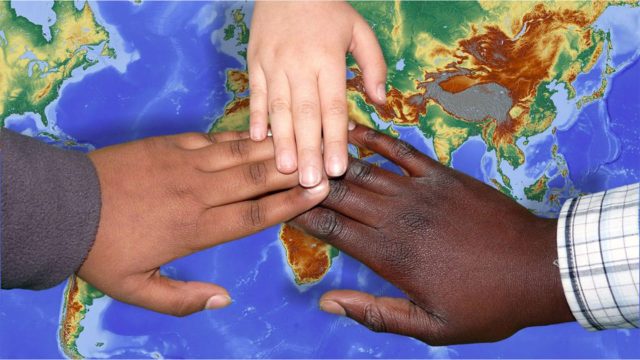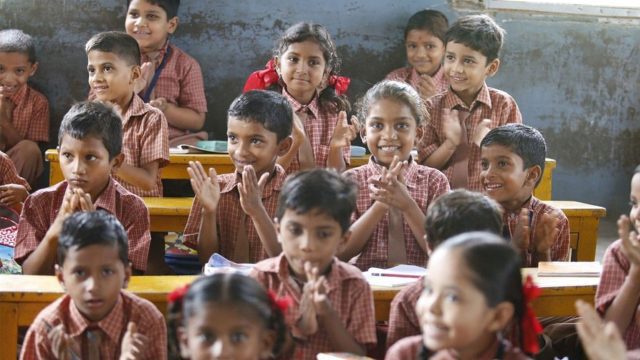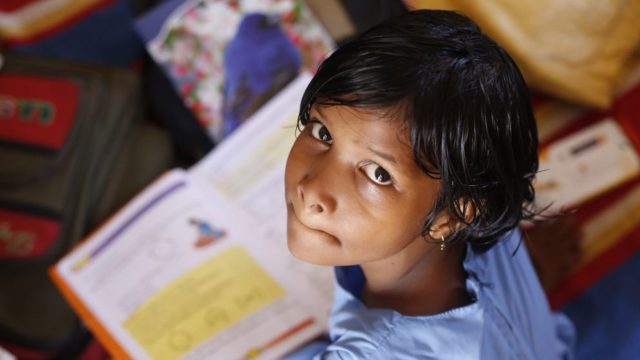Protecting migrant children across the world

The Western Balkans (an area in Southern Europe that includes Albania, Bosnia and Herzegovina, Kosovo, Montenegro, North Macedonia and Serbia) is a dynamic but still unstable region, with one of the highest levels of migration in the world. It is also one of the highest senders of refugees to the EU and, more recently, has the most people returning from the EU after failing to make a successful asylum claim.
Over the past five years, Dr Vathi’s work has shed light on some of the least researched aspects of migration in this area, in particular child migration, the regional migration of Roma families and, more recently, the return and reintegration of migrants back into their home countries and communities.
Dr Vathis’ work is unusual in that it is multi-country, multi-region, cross-generational and includes children, adults, policy makers and practitioners, allowing her to draw conclusions across boundaries. Her specific focus on children’s experiences and the way that people, particularly minority groups, are treated when returning home, is helping to change policy and improve the lives of some of the most vulnerable people in society.
“The way the region deals with migration has implications for the overall progress of the Western Balkans. For all of these countries, membership of the EU is partly conditional on migration levels and this is a major driver of change in this area.”
Dr Zana Vathi
Protecting child migrants

Many thousands of children leave the Western Balkans every year, some with their families, but many as unaccompanied minors. Child migrants are particularly vulnerable and, despite global human rights and child protection legislation, there haven’t always been effective policies in place in their countries to protect them. Children that are refused asylum abroad often return to a country with limited effective child protection laws. Even those with the protection of a family, return to extreme poverty and homelessness, as families often sell everything to fund their journey to a western country.
Dr Vathi has spent time talking to migrant children and their families to understand their lived experience, their challenges and their needs, particularly on returning to their home country. Uniquely, her work focuses on children of families who ‘voluntarily’ migrate back to their home country, rather than those forcibly returned. These children are largely overlooked in child protection policy, as they aren’t considered at risk. However, Dr Vathi shows that these children are negatively affected by return migration and need protecting as much as any other returning child.
Her innovative focus on psychosocial wellbeing is attracting interest from policy-makers, with the EU Commission and stakeholders like the World Bank, considering the needs and vulnerabilities of returning migrants when making decisions.
“[Dr Vathi’s work] can serve as a basis for further improvements to the legal, policy and institutional framework concerning immigration management, which should include the provision of services for those vulnerable groups who take difficult journeys in the hope of finding a better life.”
Terre des Hommes, international children’s rights organisation
Supporting marginalised groups

Dr Vathi’s research with minority migrant communities in the Western Balkans, including Roma, Ashkalie and Egyptians, has provided major insights into these highly stigmatised and discriminated against groups, and especially the effects of migration on children. When returning to their home country, many end up living outside the system, relying on dangerous ‘street work’ (begging, washing car windscreens at traffic lights, scavenging for items to sell, and more) to survive.
Dr Vathi’s work on circular migration (repeated, regular migration from home to another region or country for employment), street work and the associated child protection issues in Albania, Kosovo and Macedonia, led to an advocacy programme by Terre des Hommes, an international children’s rights organisation, on children and adolescent’s rights. Dr Vathi has delivered training based on her findings to practitioners and service providers in Albania who work with returning migrants to improve their treatment and wellbeing.
Among her recommendations is for children to use the skills learned through street work in state approved apprenticeships. Many migrant children, particularly from minority groups, find integrating into mainstream school difficult, so this would give them a chance to learn through doing and earn money at the same time. She also recommends bi-lingual schools and other services to recognise children’s double identity and promote education. Her work has also led to the appointment of additional social workers in Albania following her recommendation to focus on service at a local level. These recommendations are helping to shape policies and programmes in the region, which will improve outcomes for children from migrant communities.
Changing lives from the top down

Dr Vathi’s research is having a significant impact on migration management and overall social and child protection policy in the Western Balkans and internationally. Her report on transnational migration and street work in Albania and Kosovo was used in the Council of Europe Convention on Action Against Trafficking in Human Beings in Albania and also led to policy changes and new laws in Albania, Montenegro and Kosovo. It has also been used to lobby EU institutions and governments in the region and changed the way they approach the issue of European migration of children and young people.
Since 2017, Dr Vathi’s work on the reintegration of Roma returnees, commissioned by the European Commission and managed by the World Bank, has informed inclusion programmes at the national, regional and local levels and influenced the EU agenda to support reforms in the Western Balkans.
“The outcomes of this research have a broad and significant bearing on the region’s present and future status and relations with the EU, alongside the impacts on migrants, national policy makers and international organisations in the Western Balkans.”
Senior Policy Adviser, World Bank Group
Our research means that
- Migrant children have greater protections from trafficking and exploitation, whether they are migrating alone or with their families.
- Roma, and other minority, families are better able to integrate back into their home countries through policies and practices that recognise their double identity and specific needs.
- States and international organisations have evidence to inform their migration policy and decision-making, putting children’s rights and social protection at the heart of their social policy agendas.
Find out more about Zana Vathi’s research by viewing their profile on Pure:
Zana Vathi’s research